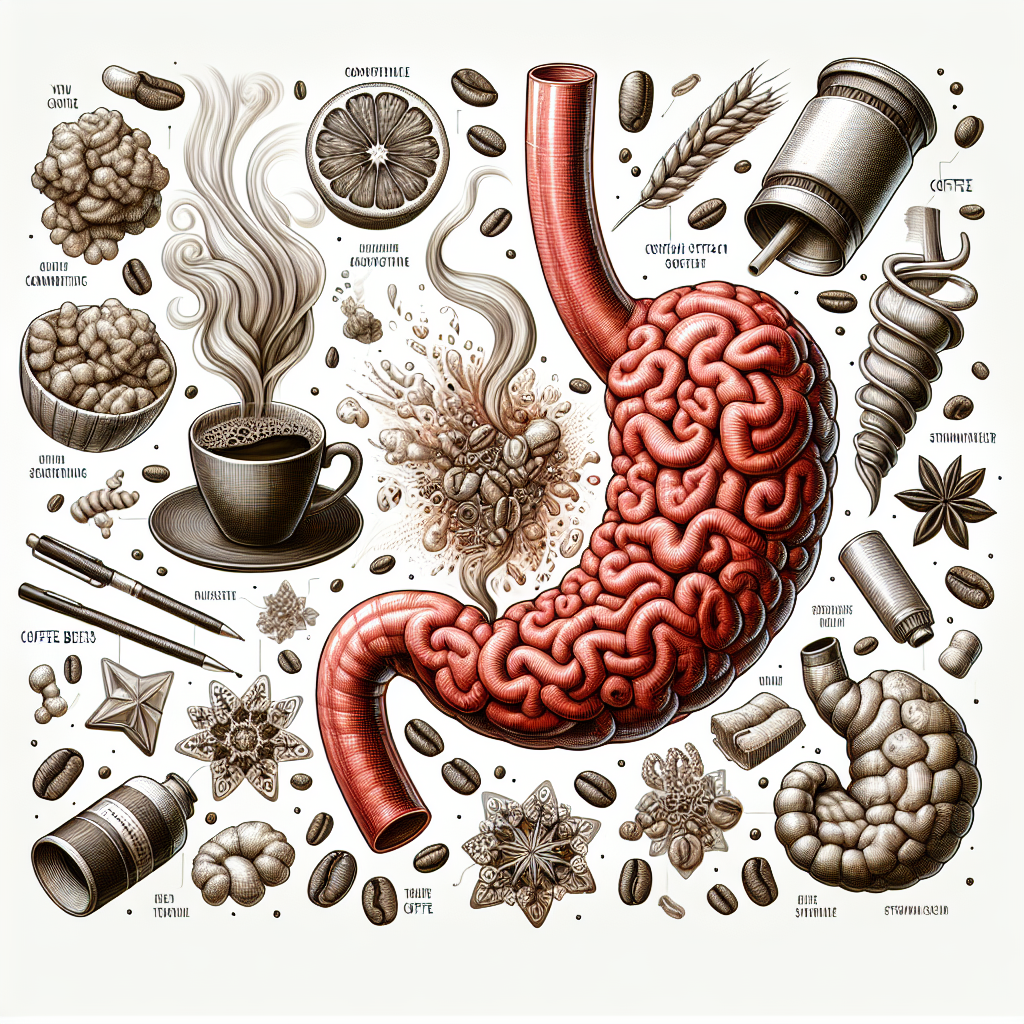Introduction
Picture this: it’s a crisp autumn morning, and as the aroma of freshly brewed coffee wafts through the air, you feel an irresistible urge to pour yourself a cup. But have you ever wondered what happens to your stomach once that delicious liquid hits it? In this article, we journey through the intricate dance between coffee and your digestive system, unraveling both the magic and the mayhem that your beloved brew might bring.
- Understanding Coffee’s Composition
- How Coffee Affects Digestion
- The Benefits of Coffee for Your Stomach
- Potential Drawbacks of Coffee Consumption
- How to Mitigate Negative Effects
- Key Takeaways
- FAQs
- Conclusion
Understanding Coffee’s Composition
Coffee is much like a symphony orchestra, where each component plays a unique role. From the robust caffeine to the delicate antioxidants, every element contributes to its complex flavor and invigorating effect. But it’s not just about taste; these compounds interact intricately with your body, especially your stomach.
Caffeine: The Energizer
Caffeine is the star performer in coffee, known for its ability to ward off drowsiness and bring a spark to our mornings. But did you know that caffeine also stimulates acid production in the stomach? This can either be a boon or a bane depending on various factors such as your individual tolerance and whether you’ve eaten anything before your coffee.
Antioxidants: The Protectors
Antioxidants in coffee act like vigilant guardians, protecting your cells from damage. Surprisingly, coffee is one of the richest sources of antioxidants in the typical American diet. These compounds can positively impact your digestive health by reducing inflammation and oxidative stress.
How Coffee Affects Digestion
Imagine your stomach as a bustling city, constantly at work digesting food and absorbing nutrients. When coffee enters the scene, it shakes things up a bit. Here’s how:
- Stimulating Acid Production: Coffee triggers the stomach lining to produce more hydrochloric acid, which aids in breaking down food.
- Activating Gastrin: This hormone promotes gastric motility, speeding up the process of digestion.
- Influencing Enzyme Activity: Certain enzymes responsible for digestion can be modulated by compounds found in coffee.
The Benefits of Coffee for Your Stomach
The love affair with coffee isn’t just about its energizing properties; it has tangible benefits for your digestive system too. Here are a few reasons why coffee could be considered a friend to your stomach:
Enhanced Bowel Movements
Ever noticed how a cup of coffee seems to get things moving? That’s because coffee acts as a mild laxative for some people, stimulating bowel movements and preventing constipation. For more insights into maintaining digestive health, visit resources like the National Institutes of Health.
Packed with Nutrients
Coffee contains essential nutrients such as niacin, magnesium, and potassium. These contribute not only to overall health but also support digestive function. According to research published by reputable sources like NCBI, these nutrients play vital roles in various bodily processes.
Potential Drawbacks of Coffee Consumption
As much as we adore coffee, it’s not all sunshine and rainbows. Drinking too much coffee or consuming it on an empty stomach can lead to some discomforts:
Increased Acid Reflux
For those prone to heartburn or acid reflux, coffee can exacerbate symptoms by relaxing the lower esophageal sphincter, allowing stomach acid to escape into the esophagus.
Stomach Upset
Too much coffee can lead to gastrointestinal distress, including symptoms like nausea, bloating, and even diarrhea. This is particularly true if you consume more than the recommended daily intake.
How to Mitigate Negative Effects
Should you forsake your favorite morning ritual altogether? Not necessarily! There are ways to enjoy your coffee without wreaking havoc on your stomach:
- Avoid Drinking on an Empty Stomach: Eating something before drinking coffee can help neutralize stomach acid.
- Opt for Low-Acidity Coffee: Some brands offer low-acid options that are gentler on the stomach.
- Moderation is Key: Limit your intake to avoid overwhelming your digestive system. For more tips on balancing your diet, check out guidelines from the FDA.
Key Takeaways
- Coffee affects stomach acid production and digestion.
- It has both beneficial and potentially harmful effects on digestive health.
- Moderation and mindful consumption can help mitigate negative effects.
FAQs
Can drinking coffee on an empty stomach harm me?
While everyone’s tolerance varies, drinking coffee on an empty stomach can increase acid production and potentially lead to discomfort or acid reflux.
Is decaf coffee better for my stomach?
Decaffeinated coffee may be gentler on the stomach due to lower caffeine levels, but it still contains other compounds that can affect digestion.
How much coffee is safe to drink daily?
The FDA recommends limiting caffeine intake to no more than 400 milligrams per day, roughly equivalent to four 8-ounce cups of brewed coffee.
Conclusion
Your relationship with coffee is like any romance—passionate yet occasionally tumultuous. While coffee can invigorate your mornings and benefit your digestive health, it’s essential to consume it wisely to avoid potential pitfalls. By understanding how coffee interacts with your stomach and making informed choices, you can savor each sip without trepidation.
For more insight on setting up Laravel on a local server, feel free to delve into our helpful guide for installing laravel on a local server and moving forward with developing on it.
How much caffeine is in a cup of coffee
Unlocking the Mystique – Exploring the Rich Flavor Profile of Black Coffee
The Ultimate Guide to Brewing the Perfect Cup of Black Coffee at Home
Health Benefits Unveiled – How Black Coffee Boosts Your Well-being
From Bean to Cup – The Fascinating Journey of Black Coffee Production







